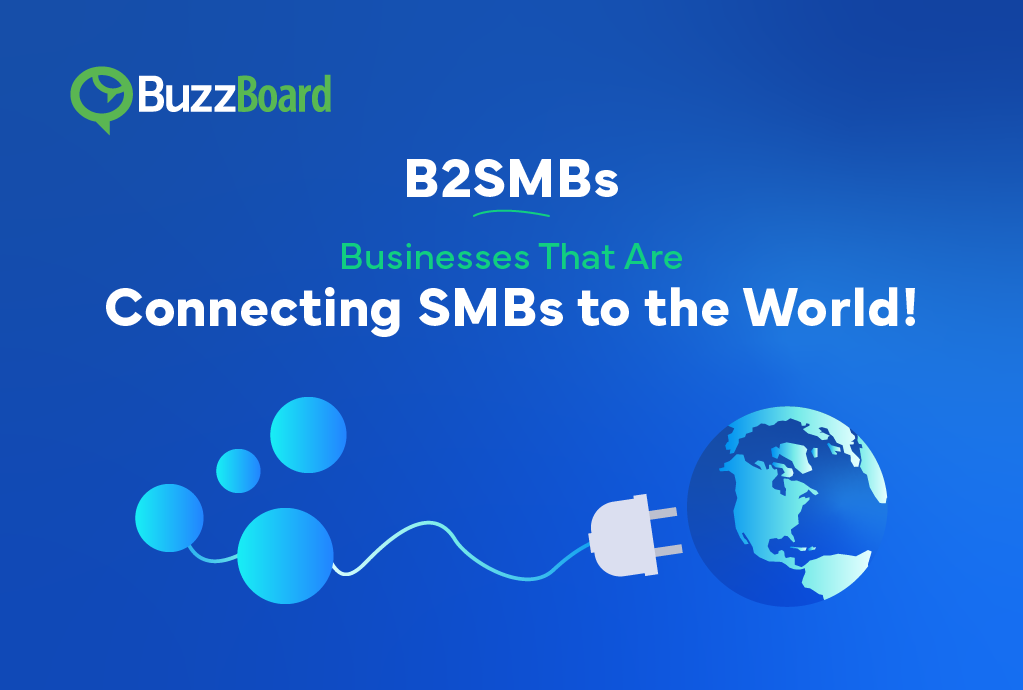Summary
What is B2SMB: An Overview
Understanding B2SMB—a common abbreviation for business-to-small-or-medium-business—is essential for teams aiming to effectively engage with the small business market. It’s a term of growing relevance in the current commercial landscape. It refers to the dynamic of specialized vendors providing goods and services to smaller businesses, a relationship pivotal to fostering local business development and boosting economic prosperity. The ‘SMB’ refers to small and mid-sized businesses, sometimes written as small and medium businesses, and it also implies ‘local’ businesses which typically qualify as small businesses.
What are the considerations when some agencies, consultancies, or service providers tailor their strategies to cater specifically to small and medium businesses or SMBs? A burgeoning sector that is growing technology and associated services like never before has become an important segment for tech and service providers.
“Small businesses are using AI customer relationship management (CRM) tools to improve how they connect with customers. At the same time, they’re using integrated tech solutions to make their operations smoother. With 54% of SMB leaders feeling confident they can adapt to market changes, these businesses are ready to respond quickly to customer needs and new opportunities.”
The above example reflects a growing AI-friendliness, optimism, and confidence among small and medium businesses. This is inspiring, but it doesn’t happen in a vacuum. Behind every agile SMB lies a carefully crafted strategy and often, a strong partnership with SMB-focused service providers or B2SMBs that know these small, ambitious businesses inside out.
Nobody gets it better than B2SMBs that the corner stores, independent cafes, tech startups, and thriving boutiques aren’t just customers; they’re the backbone of global economies. We all know, small businesses crave cost-effective solutions, personalized attention, and tools that are practical yet affordable. But not every B2B (business-to-businesses) knows the way to reach the hearts of these small entities.
Being specialists, B2SMBs have cracked it! They can translate complex digital strategies into actionable, affordable pathways for small business growth. So for all the aspiring marketing agency sellers, consultants, and/or media house professionals out there, this blog decrypts the true selves of B2SMBs, how they function, their prospecting strategy thumb rules, industry realities, and more in an easy breezy language.
The Definition: What Does B2SMB Mean?
B2SMB refers to businesses that provide products, services, or solutions directly to small and medium-sized businesses or SMBs and local businesses.
Selling to small businesses, also known as business-to-small-business or B2SMB sales, requires a distinct approach that diverges significantly from traditional B2B or B2C (business-to-consumer) sales strategies. The needs, motivations, and resources of small businesses differ substantially from those of larger corporations or individual consumers. As a result, it is crucial to tailor elements such as product or service provision, pricing, marketing communication, and customer service to the unique characteristics of this segment.
The Significance: What Makes the B2SMB Segment So Exclusive?
For B2SMBs, the mission is clear: empower small businesses with the tools, knowledge, and trust they need to face the future with confidence and win. But that’s just an oversimplified version of the B2SMB magnitude.
At its core, B2SMB is a business approach that involves designing and marketing services or products specifically with smaller or medium-sized businesses in mind. Given that local businesses operate under different constraints and opportunities than larger firms, the B2SMB approach provides agencies and other service providers with a wider and more diverse customer base to cultivate.
But then again, why the B2SMBs or the B2SMB sales is so important? Let’s start with what we already know.
Dark industry realities: Getting deeper into SMB engagement gap
With the rise of online marketplaces and e-commerce platforms, small businesses have more opportunities than ever as well as new challenges. Only the most strategic B2SMBs have mastered the techniques to sell the tools, resources, and expertise SMBs need to succeed. Here’s why in the context of selling agency services to SMBs:
Moreover, small businesses, by their very nature, are often resource-constrained and they typically lack the scale and resources of larger corporations. Therefore, the best B2SMBs keep evolving targeted marketing and sales strategies that resonate with small business owners and decision-makers. While this requires a deep understanding of the small business landscape, including the industries, markets, and trends that affect them, sales teams also must be able to build robust relationships with small and local businesses, fostering trust and credibility through personalized communication and tailored solutions.
Remember, agencies can maximize collaborations with small businesses by leveraging their unique strengths and capabilities to deliver value-added solutions.
An Introduction to B2SMB Strategic Marketing
When selling to small businesses, it’s essential to recognize that your end-user is typically a local business, but it’s not just about targeting local businesses. Instead, it’s about understanding the diverse and vibrant array of small businesses that exist, each with its own set of needs and requirements.
One of the biggest mistakes agencies make is assuming that all small businesses are the same. In the B2SMB environment, it’s essential to move beyond the broad strokes and get granular. You need to understand the specific needs of each potential client, taking into account the small business categories, alongside factors such as their size, industry, location, and goals. This requires a keen and fine-tuned approach, tailored to each potential client’s unique requirements. A simple example would be, a multi-location bakery will have different needs than a family-owned bakery.
Final thoughts: the best B2SMB marketing strategy is multi-faceted!
No single marketing tactic can guarantee success in the B2SMB space. Instead, businesses must combine education-driven content, targeted ads, relationship-building, community engagement, and customer advocacy to win SMB trust and loyalty.
Ready to reach more SMBs? Sell to small and local businesses with more confidence, with generative AI-powered hyper-personalized prospecting and closing content.








